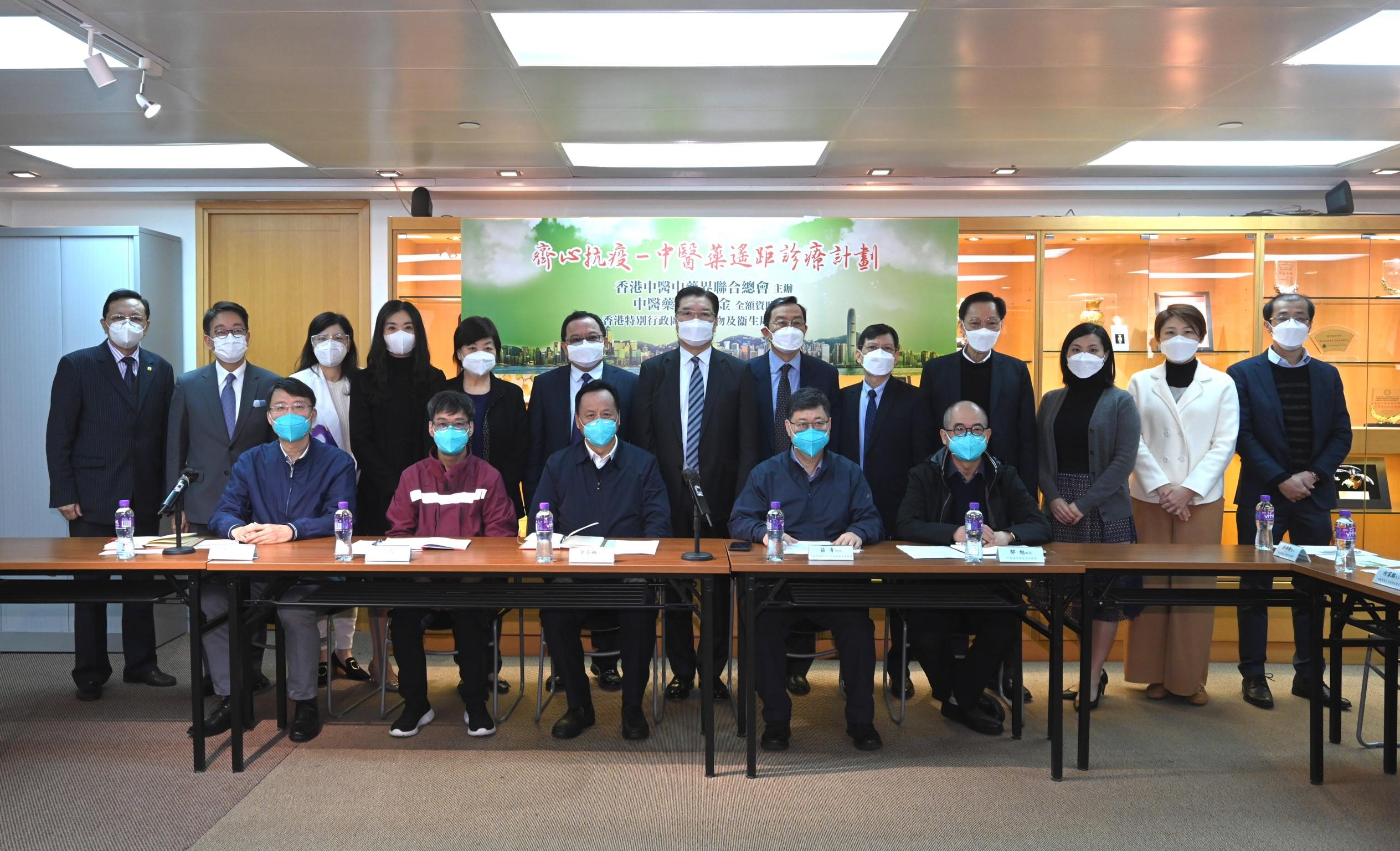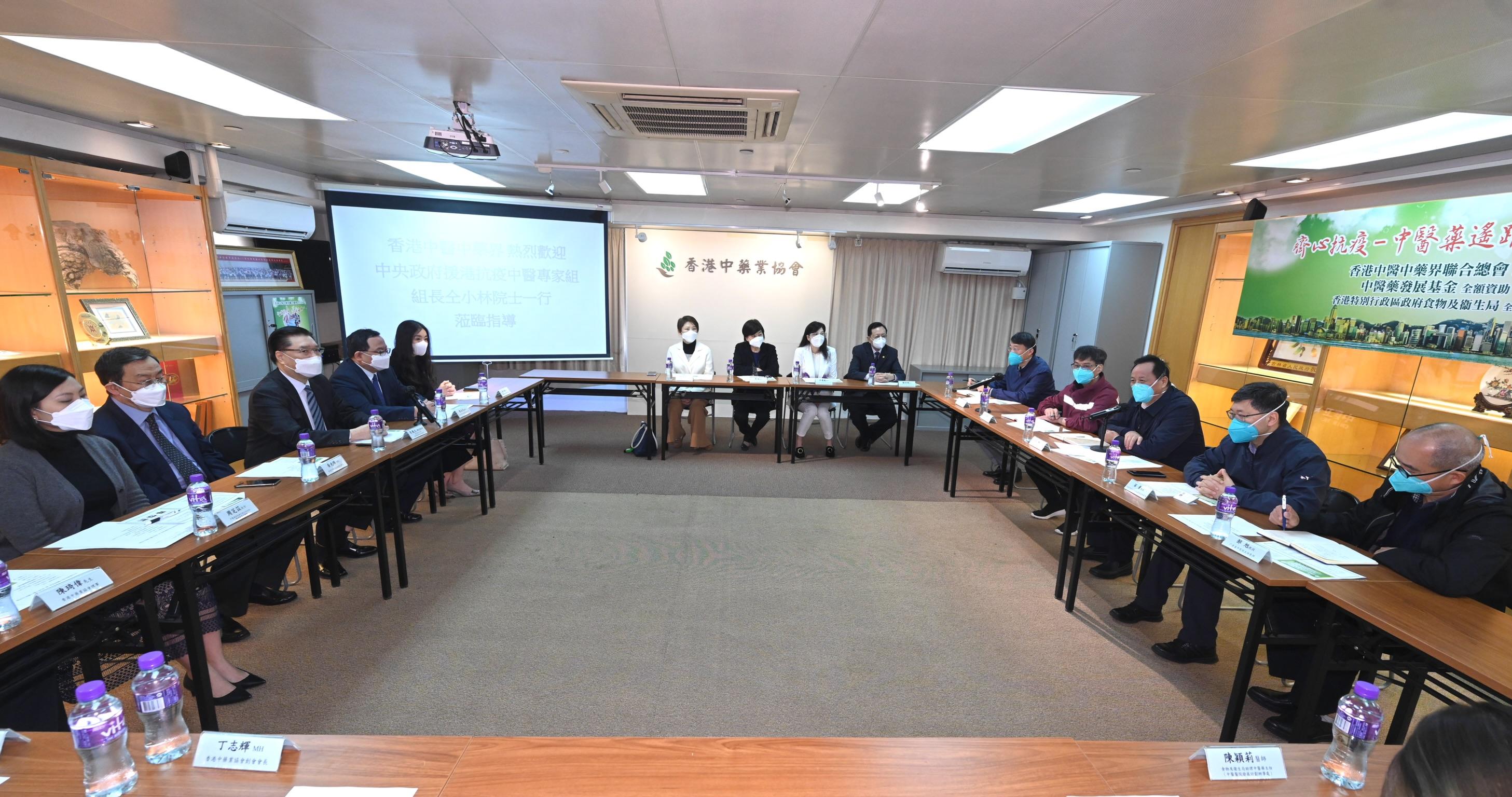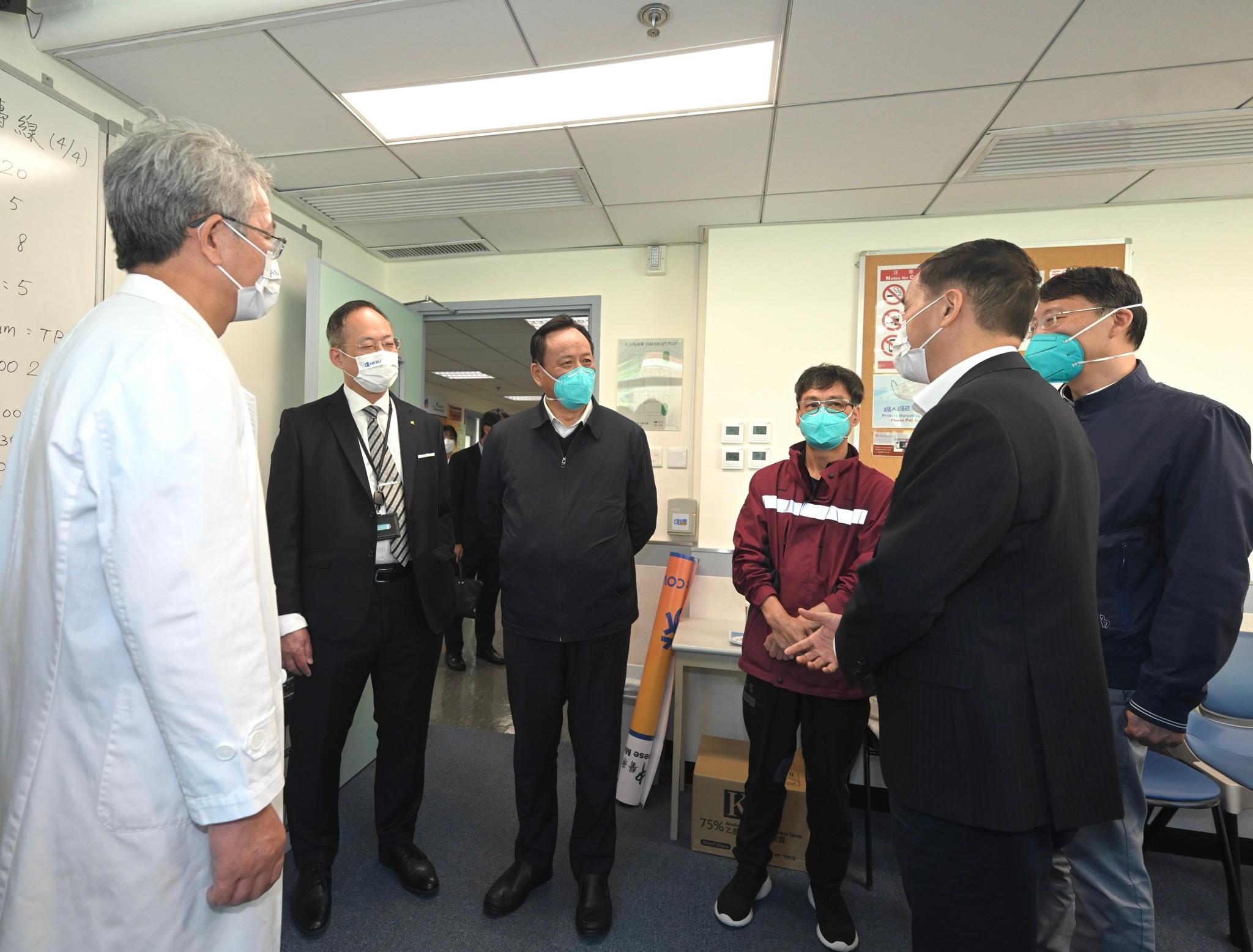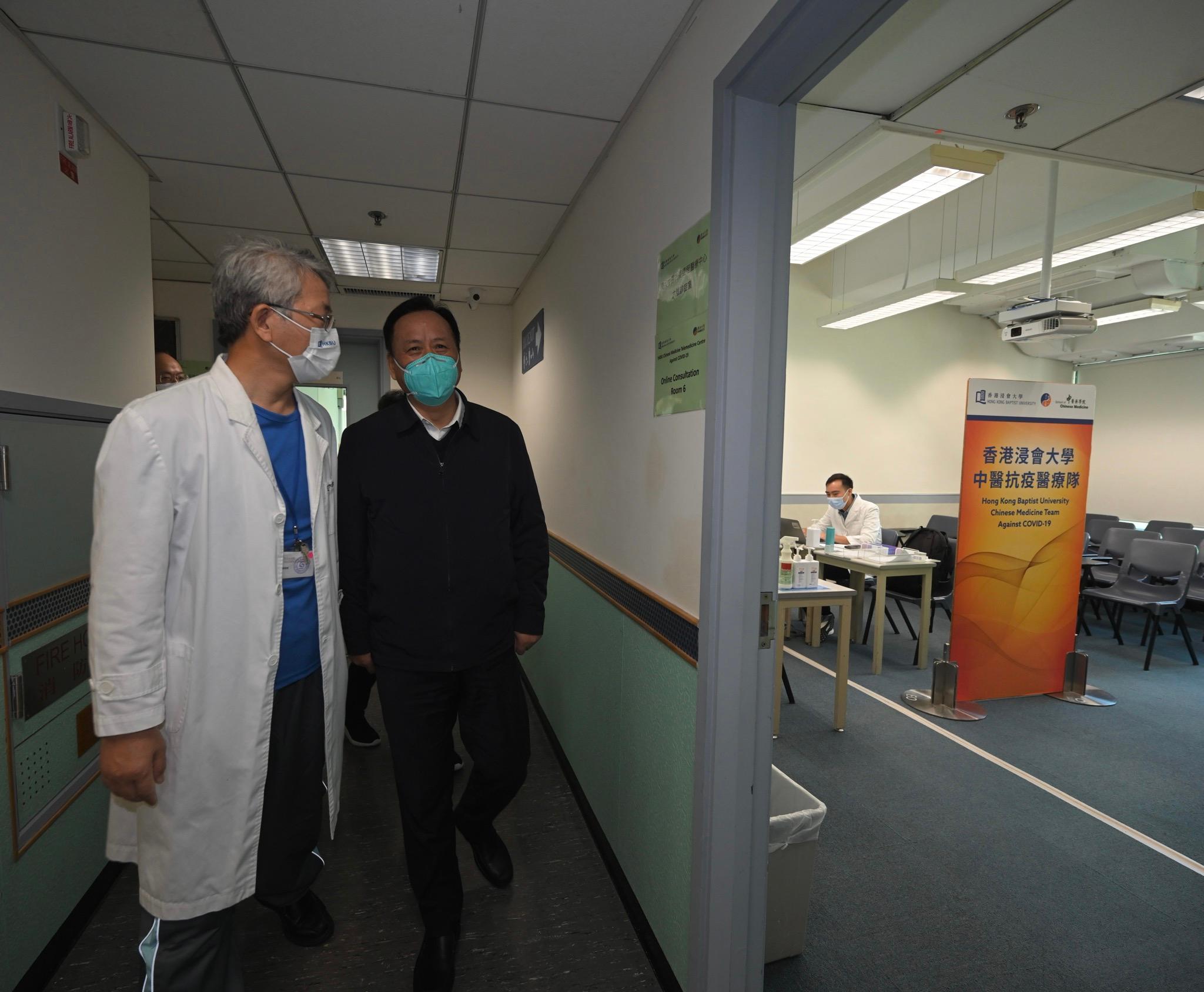The Government exercises the power under the Prevention and Control of Disease (Compulsory Testing for Certain Persons) Regulation (Cap. 599J) and publishes in the Gazette a compulsory testing notice, which requires any person who had been present at 25 specified places during the specified period (persons subject to compulsory testing) to undergo a COVID-19 nucleic acid test.
In view of a number of cases tested positive, 23 specified places are included in the compulsory testing notice. Furthermore, since some sewage samples collected in Sheung Shui and Kowloon City have tested positive, two specified places are included in the compulsory testing notice. The Government strongly reminds members of the public to strictly follow the compulsory testing requirements and undergo testing on time as required. Mobile specimen collection stations have been set up by the Government in different districts to facilitate testing to be conducted in compliance with the compulsory testing notice. The above compulsory testing requirement applies to those who have completed a COVID-19 vaccination course as well.
Persons who have tested positive in the past three months (including positive cases tested either by nucleic acid tests recorded by the Department of Health (DH) or by rapid antigen tests (RATs) that have been self-declared to the DH) do not need to undergo compulsory testing. For those who are subject to compulsory testing (save for those who have declared their positive RAT results as mentioned above), they must undergo nucleic acid tests in accordance with relevant compulsory testing notices and cannot use RATs to fulfil the requirement of such notices. In other words, a negative RAT result cannot be deemed as fulfilling the compulsory testing requirement. Furthermore, unless a person subject to compulsory testing has obtained a medical certificate proving that he or she is unfit to undergo testing using a sample taken through combined nasal and throat swabs because of health reasons, the person cannot provide a deep throat saliva sample to fulfil the compulsory testing requirement.
Details of the compulsory testing notice are available on the Centre for Health Protection (CHP)’s website via the following link: (www.chp.gov.hk/files/pdf/ctn_20220403.pdf).
If any persons are tested positive under compulsory testing, such positive cases will be handled in the same manner as in those identified through other nucleic acid tests or self-declared through RATs. Their isolation arrangements (as well as the quarantine arrangements of their household members) are no different from other positive cases.
Persons subject to compulsory testing in accordance with a compulsory testing notice must go to any of the mobile specimen collection stations, community testing centres (CTCs) or recognised local medical testing institutions to undergo professional swab sampling in fulfilling the requirements for compulsory testing. Young children may continue to undergo the test using a stool specimen.
The Comirnaty and CoronaVac vaccines are highly effective in preventing severe cases and deaths from COVID-19. They can provide protection to those vaccinated to prevent serious complications and even death after infection. The Government appeals to persons who are not yet vaccinated to get vaccinated without delay. The Government is working towards the goal of boosting vaccination rates of children, teenagers and the elderly by the end of April so that they can be protected by the vaccines as early as possible.
CTCs provide testing services for the public. Booking and walk-in services are available. Members of the public only need to provide simple personal information on the 24-hour booking system (www.communitytest.gov.hk/en). The system shows the booking status of the centres for the coming two weeks to facilitate the public’s planning and selection of a suitable testing centre and a time slot for testing. The testing centres will accord priority to serve individuals with advance bookings. As of 6pm today (April 3), there was around 96 per cent availability for booking places for the coming two weeks. Members of the public may call the testing centres for enquiries on the availability of bookings or walk-in quotas before visiting the centres.
The Government will reopen the mobile specimen collection station at the basketball court outside Hong Cheung House of Cheung Hong Estate in Tsing Yi tomorrow (April 4). Separately, ticketing machines have been installed in a number of service points for on-site ticket arrangement. Members of the public who have obtained a ticket can visit the CTC website (www.communitytest.gov.hk/en) to check the real-time queueing ticket status.
Persons subject to compulsory testing may conduct free testing at CTCs or mobile specimen collection stations (if the service scope is applicable). The opening dates and operating hours of the mobile specimen collection stations are stated in the Annex.
Persons subject to compulsory testing may choose to undergo testing via the following routes:
(a) For tests which require using a sample taken through combined nasal and throat swabs
1. To visit any of the mobile specimen collection stations (see the list and target groups (if applicable) at www.coronavirus.gov.hk/eng/early-testing.html) for testing;
2. To attend any of the CTCs (see the list at www.communitytest.gov.hk/en);
3. To self-arrange testing provided by private laboratories which are recognised by the DH and can issue SMS notifications in respect of test results (see the list at www.coronavirus.gov.hk/pdf/List_of_recognised_laboratories_RTPCR.pdf), and the relevant sample must be taken through combined nasal and throat swabs; or
4. To use a specimen bottle distributed to the relevant specified premises by the CHP (if applicable), and return the specimen bottle with the stool sample collected as per relevant guidelines.
(b) For persons holding a medical certificate issued by a registered medical practitioner proving that they are unfit to undergo testing using a sample taken through combined nasal and throat swabs because of health reasons
1. To obtain a deep throat saliva specimen collection pack from post offices, vending machines set up at MTR stations or designated general out-patient clinics (GOPCs) of the Hospital Authority and return the specimen to one of the designated specimen collection points (see the distribution points and times, and the specimen collection points and times, at www.coronavirus.gov.hk/eng/early-testing.html);
2. To undergo testing at any of the GOPCs of the Hospital Authority as instructed by a medical professional of the Hospital Authority; or
3. To self-arrange testing provided by private laboratories which are recognised by the DH and can issue SMS notifications in respect of test results.
A spokesman for the Food and Health Bureau cautioned that testing received at the Accident and Emergency Departments of the Hospital Authority, or testing provided by private laboratories which cannot issue SMS notifications in respect of test results, does not comply with the requirements of the aforementioned compulsory testing notice.
“If persons subject to compulsory testing have symptoms, they should seek medical attention immediately and undergo testing as instructed by a medical professional. They should not attend the mobile specimen collection stations or the CTCs.”
Persons subject to compulsory testing must keep the SMS notifications containing the result of the test and the relevant medical certificate (if applicable) for checking by a law enforcement officer when the officer requires the persons to provide information about their undergoing the specified test.
Any enquiries on compulsory testing arrangements may be addressed to the hotline at 6275 6901, which operates daily from 9am to 6pm.
The Government will continue to trace possibly infected persons who had been to relevant premises, and seriously verify whether they had complied with the testing notices. Any person who fails to comply with the testing notices commits an offence and the maximum penalty upon conviction is a fine at level 4 ($25,000) and imprisonment for six months. The fixed penalty for discharging the liability is $10,000. The person may also be issued with a compulsory testing order requiring him or her to undergo testing within a specified time frame. Any person in breach of the compulsory testing order would be liable to a fine at level 5 ($50,000) and imprisonment for six months.
The spokesman said, “The Government urges all individuals who are in doubt about their own health conditions, or individuals with infection risks (such as individuals who visited places with epidemic outbreaks or had contact with cases tested positive), to undergo testing promptly for early identification of infected persons. read more





